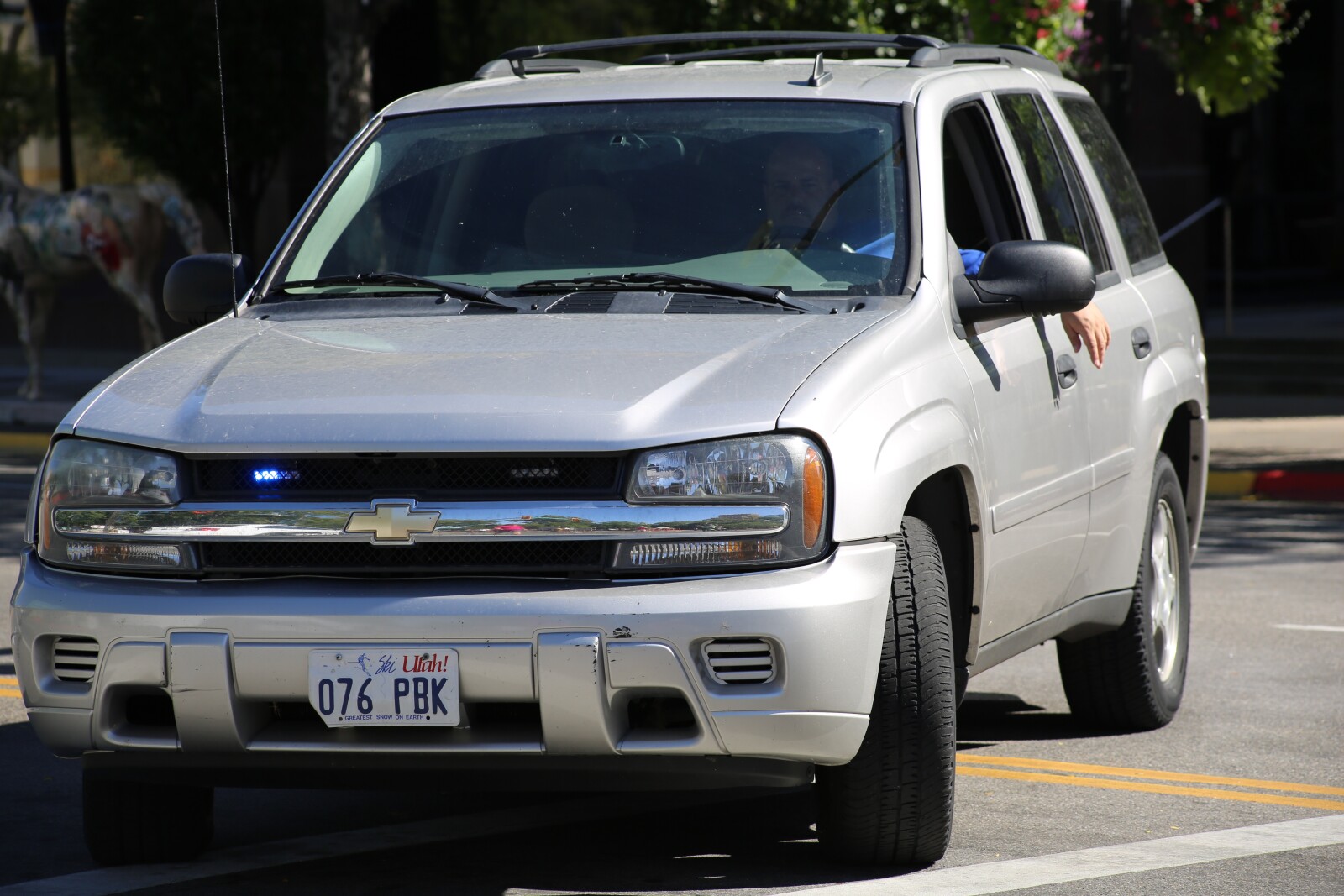General Motors Faces Massive Lawsuit Over ‘Chevy Shake’ Defect
General Motors is in the eye of a storm, facing a colossal lawsuit over a pervasive drive shaft defect, infamously known as the 'Chevy Shake.' This alleged defect, concealed from consumers, purportedly renders certain Chevrolet, Cadillac, and GMC vehicles undrivable. Despite widespread knowledge of this issue, GM has not issued a recall. This litigation serves as a stark reminder of automakers' accountability for consumer safety and product performance.

Details of the Lawsuit
Why was the lawsuit, Weiss v. General Motors LLC, filed on April 23, 2019, with the case number 1:19cv21552? The lawsuit was instigated due to a purported defect in certain General Motors vehicles, leading to what is commonly referred to as the 'Chevy Shake.' The lawsuit argues that this defect, undisclosed to consumers, can cause loss of control, making the vehicles undriveable. The potential damages from this defect are considerable, affecting numerous vehicle owners nationwide. The plaintiffs are seeking consumer compensation for all who purchased or leased the affected models. If successful, this case could set a precedent for future class actions against vehicle manufacturers who fail to disclose known defects to consumers.
Named Defendants
In the lawsuit Weiss v. General Motors LLC, the defendant named is General Motors LLC, the multinational corporation responsible for manufacturing the vehicles allegedly possessing the 'Chevy Shake' defect. The allegations brought against the named defendants indicate a significant impact on consumers due to the potential safety risks associated with the defect. It is suggested that the 'Chevy Shake' could lead to loss of control, thereby rendering the vehicle undrivable, a substantial concern for those who purchased or leased the affected models. Furthermore, it is claimed that General Motors failed to adequately disclose the defect to consumers. The lawsuit underscores the potential consequences for corporations that fail to address product defects promptly and transparently, particularly when consumer safety is at risk.
Case Number and Filing Date
Following the allegations against General Motors LLC, the lawsuit, officially known as Weiss v. General Motors LLC, was formally filed on April 23, 2019, under the case number 1:19cv21552. This lawsuit has brought to light several pressing issues related to the alleged 'Chevy Shake' defect:
- The impact on consumers who have been driving potentially unsafe vehicles.
- The potential damages consumers may have suffered due to repair, replacement, or depreciation costs.
- The legal responsibilities and potential penalties for General Motors, if found guilty.
- The overall effect on General Motors' reputation and consumer trust.
The unfolding of this case will undoubtedly be watched closely by all parties concerned, as it could set a precedent for future auto defect lawsuits.
Potential Class Action Status
General Motors finds itself at the center of potential class action litigation, as the lawsuit alleges significant design defects in certain Chevrolet, Cadillac, and GMC models. The case, if granted class action status, could lead to substantial financial liabilities for the auto giant. Moreover, the impact on General Motors' reputation could be devastating, especially if the alleged defects are proven to be true and widespread. The potential settlement terms are currently undisclosed but are likely to be substantial, considering the scope of the alleged defects and the number of affected vehicles. GM, already battling market challenges, may find its brand image significantly tarnished, further complicating its path to recovery. The final outcome of this case will undoubtedly have repercussions for the company's future.
The 'Chevy Shake' Defect
While the potential class action status poses significant challenges for GM, our focus now shifts to the core issue at hand: the 'Chevy Shake' defect. This pertains to an alleged drive shaft issue causing vibrations, or a 'shake,' in certain GM vehicles.
The 'Chevy Shake' defect has significant implications:
- Impact on Consumer Safety: The defect purportedly compromises vehicle control, posing a direct threat to consumer safety.
- Financial Implications: If proven, GM could face substantial financial liabilities, including potential refunds or replacements.
- Damage to Brand Reputation: The lawsuit could tarnish GM's reputation, affecting future sales.
- Regulatory Concerns: GM's alleged failure to disclose the defect may draw regulatory scrutiny, resulting in possible sanctions or stricter oversight.
Updates on the Lawsuit
In a significant development, General Motors agreed on July 15, 2020, to settle the proposed class action lawsuit on an individual basis, following allegations of the widespread 'Chevy Shake' defect in several of their vehicle models. The updates on mediation highlighted that both parties have reached an agreement in principle to resolve plaintiffs' claims. The resolution timeline foresees the finalization of the settlement agreement and the filing of a notice of dismissal by the end of August.
| Timeline | Event | Impact |
|---|---|---|
| July 15, 2020 | Agreement on individual settlements | Potential relief for claimants |
| End of August 2020 | Expected finalization of agreement | Legal closure |
| Post-August 2020 | Filing of dismissal notice | Case conclusion |
| Future | Potential further legal action | Continued accountability for GM |
Mediation and Settlement Agreement
The plaintiffs' claims against General Motors over the 'Chevy Shake' defect were addressed in a mediation session on July 15, 2020, which led to the automotive manufacturer agreeing to settle the proposed class action lawsuit on an individual basis. Mediation offered several advantages such as cost-effectiveness, time-saving, and the opportunity for both parties to reach a mutually beneficial agreement.
However, potential challenges in finalizing the settlement might include:
- Agreeing on the compensation amount for each individual plaintiff.
- Negotiation of terms that could satisfy both parties and prevent future litigation.
- The process of identifying and contacting all affected car owners.
- The need to obtain court approval for the settlement agreement.
These steps could possibly prolong the settlement process.
Judge’s Ruling on Dismissal Motion
Following the filing of the lawsuit, a significant development occurred in October 2019 when a U.S. District Judge partially granted General Motors' motion to dismiss the suit. The judge's ruling did not completely absolve the automaker from the litigation, but it did narrow the scope of the lawsuit. General Motors had presented a dismissal motion to have the case rejected, arguing that the plaintiffs had not provided sufficient proof of the alleged drive shaft defect. While the judge agreed with GM's argument on certain aspects, he also found that some claims by the plaintiffs were adequately substantiated. This mixed ruling allowed the case to proceed, albeit with a reduced number of allegations against General Motors.
Affected GM Vehicles
Several models of General Motors vehicles, including the Cadillac Escalade, Chevrolet Silverado, and GMC Sierra, among others, have been implicated in the lawsuit due to the alleged 'Chevy Shake' drive shaft defect. This defect impact varies, but it may lead to a loss of control, rendering the vehicle undrivable.
The following are the GM vehicles affected:
- 2015-present Cadillac Escalade
- 2014-present Chevrolet Silverado
- 2015-present Chevrolet Suburban
- 2015-present Chevrolet Tahoe
These models are reported to exhibit the 'Chevy Shake', a disturbing vibration that has led to numerous complaints. Despite being well-documented, General Motors has yet to issue a recall for the affected vehicles. The lawsuit seeks to address this alleged negligence on part of the automaker.
Impact of the Defect
With the alleged 'Chevy Shake' drive shaft defect present in multiple GM models, the potential impact on consumers is significant, leading to potential loss of vehicle control and rendering the vehicle undrivable. The safety risks associated with this defect cannot be understated, posing a threat to all road users when affected vehicles are in motion. Beyond safety concerns, the defect presents potential financial implications for consumers. The cost of necessary repairs, coupled with the vehicle's decreased resale value due to the defect, could lead to substantial financial burdens. Additionally, the ongoing lawsuit against GM may result in compensation payouts, further exacerbating GM's financial situation. Ultimately, the true extent of the impact on consumers and GM's financial consequences is yet to be determined.
Alleged Non-disclosure by GM
The failure of General Motors to disclose the 'Chevy Shake' drive shaft defect to consumers forms a pivotal aspect of the ongoing lawsuit against them. This non-disclosure, alleged by plaintiffs in the lawsuit, highlights a potential dereliction of GM's duty of care towards their consumers.
The GM's alleged non-disclosure can be summarized in the following four points:
- GM reportedly knew about the 'Chevy Shake' defect, but failed to inform buyers.
- The automotive giant did not issue a recall to address the issue.
- Lacking this critical information, consumers continued to purchase the affected vehicles.
- This non-disclosure may have led to potential consumer harm, as the defect could compromise vehicle safety.
This lawsuit underscores the necessity for transparency in the automotive industry.
Lack of Recall by GM
Why has General Motors, despite being well-aware of the 'Chevy Shake' drive shaft defect plaguing certain models, not issued a recall to address this dangerous problem? The impact of this defect is not merely a nuisance; it poses potential safety hazards that could lead to catastrophic outcomes. The 'Chevy Shake' impairs vehicle control, causing anxiety and fear among drivers, and potentially leading to accidents. GM's failure to issue a recall, despite their intimate knowledge of the defect, raises questions about their commitment to customer safety. This lack of action has left many consumers feeling betrayed and vulnerable, their trust in one of America's largest automobile manufacturers significantly eroded. This oversight could have severe implications for GM's reputation and customer loyalty.
Scope of the Lawsuit
Although GM's failure to issue a recall has caused concern among consumers, the scope of the lawsuit extends beyond this, as it seeks to represent all consumers nationwide who purchased or leased the affected GM vehicle models. The lawsuit encompasses several facets:
- The plaintiff's accusation that GM knew about the alleged defect but failed to disclose it to consumers.
- The claim for potential damages, which include not only the cost of repairs but also the diminished value of the vehicles.
- The demand for consumer compensation for the economic losses suffered due to the alleged defect.
- The push for a court order requiring GM to notify all current owners and lessors of the affected vehicles about the alleged defect.
Settlement Agreement Details
In light of these allegations, General Motors has agreed to settle the proposed class action lawsuit on an individual basis, a resolution reached after mediation on July 15, 2020. The details of the settlement agreement, although not yet finalized, indicate an intention to address the plaintiffs' claims comprehensively. It is expected that the agreement will be concluded and a notice of dismissal filed by the end of August. As part of the settlement, General Motors may be required to provide potential compensation for affected consumers who purchased or leased the specified vehicle models. This compensation could take various forms, such as reimbursement for repairs, vehicle replacement, or monetary damages, depending on the individual circumstances of each claimant.
Finalizing the Settlement
While the details of the settlement are yet to be finalized, both parties are committed to resolving the issue by the end of August, thereby concluding the lawsuit that has brought significant attention to the 'Chevy Shake' defect. This settlement timeline is essential to ensure the swift resolution of the case.
The final settlement will have significant implications for consumers. These impacts can be summarized as follows:
- Consumers affected by the 'Chevy Shake' defect may be eligible for compensation.
- The resolution may influence GM's decisions regarding future product quality and recalls.
- It may set a precedent for similar lawsuits in the automotive industry.
- Consumers may gain increased trust in GM's commitment to addressing quality issues promptly.
Frequently Asked Questions
What Are the Possible Financial Implications for General Motors Due to This Lawsuit?
The financial implications for General Motors due to this lawsuit could be significant. The lawsuit's impact could result in substantial settlement costs, legal expenses, and potential loss of sales due to reputational damage. Furthermore, GM might need to invest in rectifying the 'Chevy Shake' defect in existing and future models, which would increase operational costs. This damage assessment underscores the potential financial burden that GM could bear due to this legal issue.
How Does the 'Chevy Shake' Defect Affect the Resale Value of the Affected Models?
The 'Chevy Shake' defect potentially diminishes the resale value of affected models due to perceived instability and safety concerns. In our Shake Impact Analysis, it was observed that buyers tend to offer less for vehicles known to have such issues. Moreover, Defect Compensation Strategies like repairs or replacements may not fully restore the vehicles' value, as the reputation damage caused by the defect could still influence prospective buyers' perceptions and their willingness to pay.
What Are the Safety Implications Related to the 'Chevy Shake' Defect?
The 'Chevy Shake' defect presents significant safety implications. This defect, primarily detected through shake detection techniques, can lead to loss of vehicle control. The shaking, originating from the drive shaft, renders the vehicle unstable and potentially undrivable. Defect prevention strategies are crucial to mitigate such risks. It's imperative manufacturers like General Motors proactively address such defects to ensure safety and maintain consumer trust.
Could This Lawsuit Potentially Impact General Motors’ Reputation and Customer Trust?
The ripple effects of this lawsuit could potentially tarnish General Motors' brand perception, eroding customer trust. The public often views lawsuits as a red flag, signaling potential quality or safety issues. As a result, GM may need to implement robust damage control measures, such as transparent communication and proactive steps to rectify the defect, to mitigate the impact on their reputation and restore their standing as a trusted automaker.
What Are the Steps for Consumers to Join the Class Action Lawsuit or Pursue Individual Claims?
To participate in the lawsuit, consumers must provide proof of purchase or lease for the affected GM vehicles. For individual claims, one must consult with a lawyer to file a separate lawsuit. It is recommended to keep details of any related expenses or damages. It's crucial to note that joining a class action may limit your ability to pursue individual claims. Always seek legal advice to understand your rights and the best course of action.

This post has been generated by AI and was not reviewed by editors. This is Not legal advice. Please consult with an attorney.




